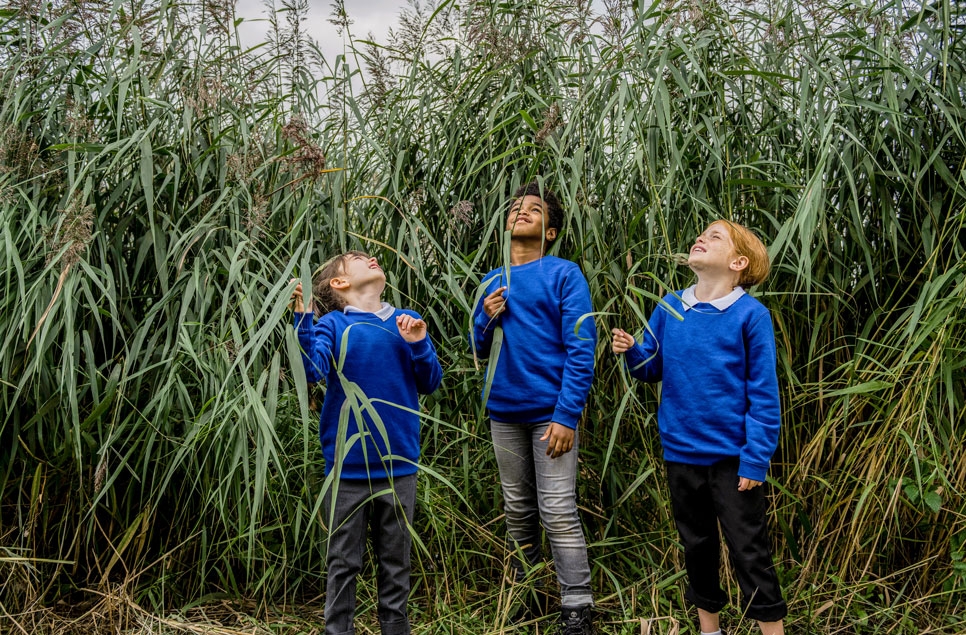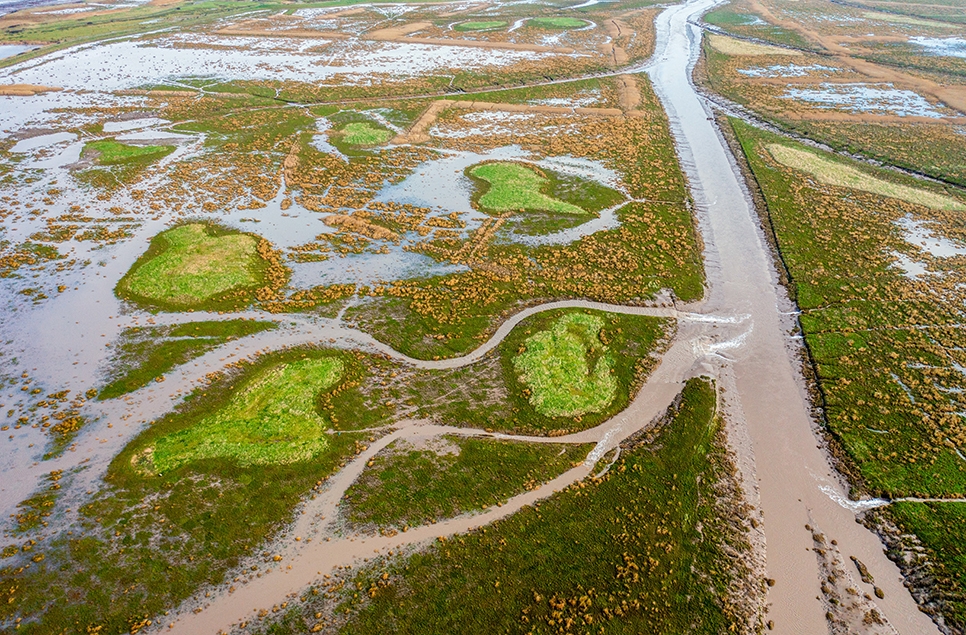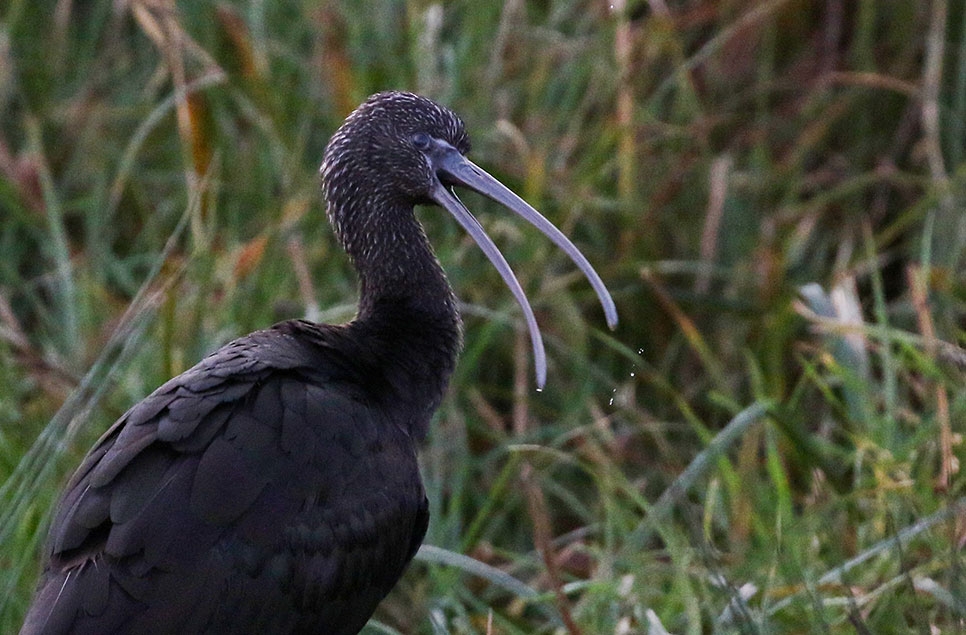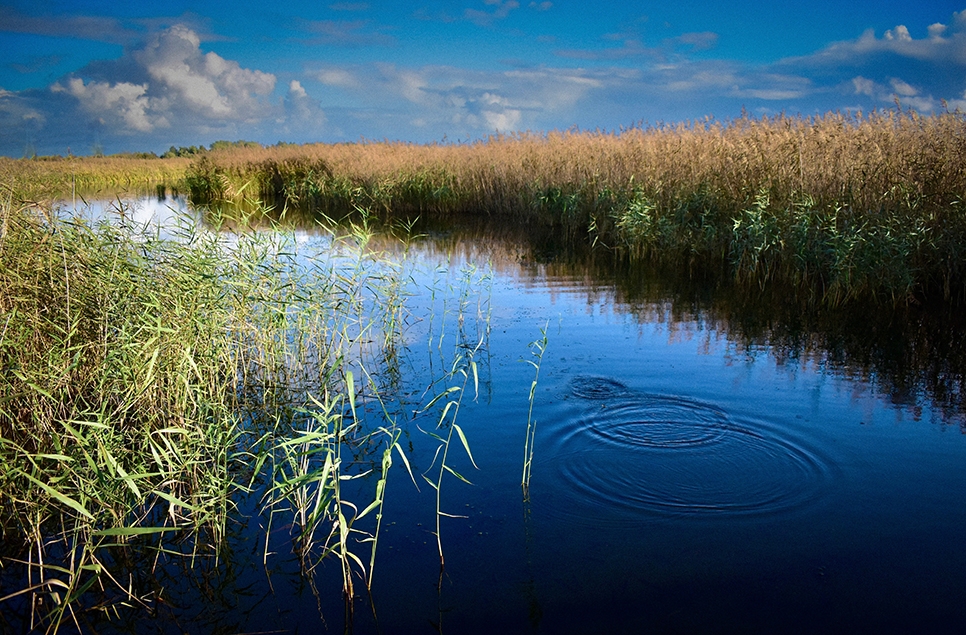Nature and lockdown: how we can plan a ‘green recovery’ for our health
Many of us have become acutely aware that our connection to wild places and other forms of life is innate and essential to our wellbeing as well as that of the wildlife we love. So how can we make nature and our health our priority?
Throughout the lockdown I’ve been interested in how the environment features in the Government’s approach to limiting our movements, and the spread of the virus. Like WWT they’ve recognised the importance of nature access to our wellbeing.
Since lockdown began, restrictions have limited us to the bare essentials: we can get food, we can repair our homes and once a day we can go outside and exercise. Our local green and blue spaces are key places for us to do this.
These restrictions have brought our health into sharp focus and shifted attitudes. A recent YouGov poll found eight out of ten people would prefer the Government to prioritise health and wellbeing over economic growth during the pandemic, and six in ten would still want the government to pursue health and wellbeing ahead of growth after the pandemic has subsided.
Last week, one of their first actions when easing lockdown was to allow people in England to drive to more distant nature sites, provided they follow social distancing rules. Further demonstration of how nature is an essential part of life and our recovery from the pressures of lockdown. This renewed interest in nature is reflected online, with Google Trends data showing an increase in searches for terms like 'beaches' and 'lakes'.
As a nature organisation, we’re encouraged by the prospect of welcoming back our visitors and behind the scenes, our staff are working hard on plans that would allow a limited and safe reopening of our sites, hopefully in the near future.

Lockdown’s toll on our health
The pandemic has brought a multitude of stresses – fear of losing employment, social isolation, misinformation and uncertainty around the future, and, for far too many people, the pain of losing loved ones – and these are placing great pressure on our mental health.
The UN secretary-general Antonio Guterres recently voiced his concerns, warning that “many people who previously coped well, are now less able to cope because of the multiple stressors generated by the pandemic”.
Claire Murdoch, NHS England’s national clinical director for mental health, told the Commons Health and Social Care Committee that demand for mental healthcare would increase “significantly” once the lockdown ended and would see our key workers needing treatment for trauma for years to come.
These warnings come at a time when mental health organisations were already voicing concerns about the nation’s mental health. Before the pandemic Mind had reported that two out of five GP appointments were mental health-related.
The problem is acute right now, and it’s going to continue to challenge Governments and the health sector well into the future. And at such a scale there’s clearly a role for all sectors of society in addressing this looming mental health crisis.

Blue Prescriptions
In recent years, WWT has been working on an option of its own that could prove useful as we seek to recover from the stresses of the pandemic. It’s a project called ‘Blue Prescriptions’, a wetland-based health programme intended as an alternative or complementary treatment option for people experiencing mental health issues.
It is based on the concept of social prescribing – where healthcare professionals refer people to local, non-clinical services to improve health and wellbeing. Social prescribing is a way to make the most of the opportunities in the local community.
Blue Prescriptions aims to harness our innate connection with nature – sometimes known as ‘biophilia’ – to reduce psychological stress, fatigue, anxiety and depression; but there are wider benefits like reducing social isolation and increasing physical activity.
In 2019, we ran a successful trial at WWT Slimbridge. A total of 16 adults – who had been diagnosed with anxiety and/or depression - took part and we measured significant improvements in mental wellbeing, anxiety, stress and emotional wellbeing. One participant said, “It’s given me a reason to get out of the house” and he now uses nature to manage his mental health.

A word from our partners
We are now working on expanding Blue Prescriptions. To do this we’re partnering with the Mental Health Foundation. This week is Mental Health Awareness Week, and the theme is kindness.
I spoke to Jolie Goodman for this blog and she too reflected on how the pandemic has put pressure on our collective mental health. On Friday Jolie and the Mental Health Foundation are encouraging everyone to think about kindness, both to ourselves and others, as a route to improved mental health. For Jolie walking outside has been her act of self-kindness, and she’s been able to discover green spaces locally that she don’t know existed.
In the future, I look forward to more nature-based interventions in green and blue spaces to support people whose mental health has been negatively impacted by the pandemic.
Jolie Goodman, Mental Health Foundation
We’re also partnering with The University of Exeter’s European Centre for the Environment and Human Health (ECEHH). They have been researching in this field for over 10 years and have been designated a World Health Organisation (WHO) Collaborating Centre on Natural Environments and Health; an accolade that recognises the University's significant contribution to science and policy-making from a decade of research.
This autumn student Hannah Forbes started her PhD with WWT and the ECEHH, and she’ll be helping us work out how we can bridge the gap between the NGO and health sectors, which operate very differently, in order to make programmes like Blue Prescriptions run effectively.
I spoke to Hannah and Dr Rebecca Lovell from the ECEHH this week and they told me how the most important research challenges relate to how we can best develop and deliver programmes which use nature to equitably support people with mental health challenges:
We know that health is getting worse for people in deprived areas and health inequalities are increasing. For the whole population of England, health is declining.
We also know that nature is a source of respite and solace for many people, and our evidence demonstrates that people who have more access tend to be happier and healthier. However, the benefits are not distributed equally, and some, especially those struggling with poor mental health, find it difficult to get into nature.
Blue Prescriptions, which makes use of a safe and welcoming natural environment to gently introduce people back into nature, is a promising example of how nature-based social prescribing could be used in the post-COVID period.
Dr Rebecca Lovell and Hannah Forbes, University of Exeter
A ‘win-win’ for nature and health
The aim of Blue Prescriptions is of course to improve the health of the participants, but a wider effect will be to show how healthy, biodiverse wetlands can help improve the wellbeing of a nature-depleted society, while providing all the other benefits that wetlands can offer to wildlife.
This is one of the reasons why at WWT we advocate and work towards the creation of healthy wetlands in urban spaces, for example at Slough. We believe we should be facilitating high quality nearby nature; so people living in urban areas can get an everyday nature ‘fix’ while creating corridors of habitats for wildlife.
In our increasingly urbanised environment, many people who don’t have private access to outdoor space rely on public places to have any kind of nature interaction at all. But it’s important to remember that green space access is often unequal, people in deprived areas are less likely to have good green space provision and the percentage of homes without gardens is higher among ethnic minorities. This is one of the big societal challenges we need to overcome.

The ‘green recovery’
Looking at the bigger picture, the pandemic has provided an active demonstration of what a growing body of science tells us; that our health and the environment are inextricably linked on both a local and a global scale. There’s now increased awareness that our mismanagement of the natural world has led to a greater likelihood of wildlife disease spilling over into humans. It’s also been highlighted on a personal level under lockdown, as many of us have become acutely aware that connecting with nature, in all its forms, helps us to be resilient to life’s challenges.
Initiatives like Blue Prescriptions could form part of the broader package of ‘green recovery’ initiatives being called for across Europe in response to the pandemic. Just this week WWT added its name to a letter from the Green Alliance (60 chief executives from business and the environment sector) asking the government to put a resilient economy, healthy communities and the natural world at the centre of the recovery plan.
It calls for the Government to ‘place the health and wellbeing of people and nature at the heart of the recovery by increasing access to nature-rich green space for everyone’. Projects like Blue Prescriptions are the practical embodiment of these ambitions.

The current crisis has heightened the awareness of a need for change. The climate and biodiversity crises haven’t gone away, and the health crisis we now find ourselves in has forced the world to reframe its values. Now more than ever we need to focus on health - that of our wild places and ourselves.
By Dr. Jonathan Reeves, Principal Research Officer (Health & Wellbeing)
Our mission for wetlands
We're researching ways that wetlands can help our wellbeing, so everyone will recognise the amazing things nature can do for both us and wildlife.
Find out more


